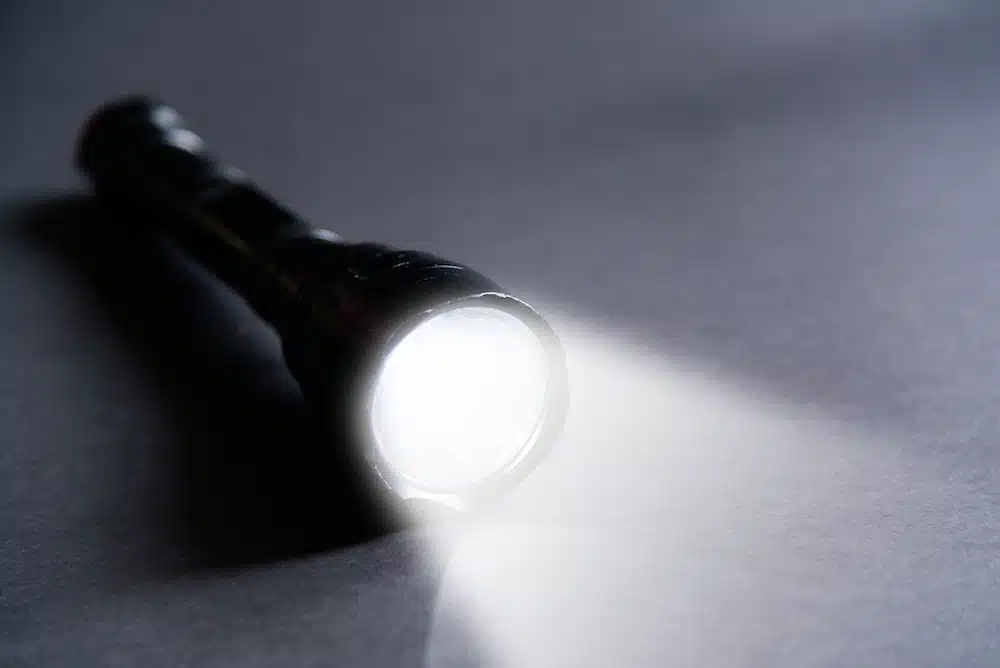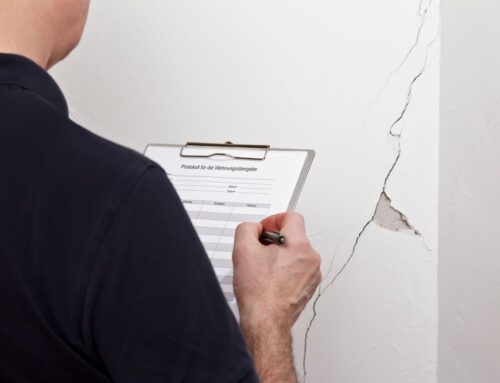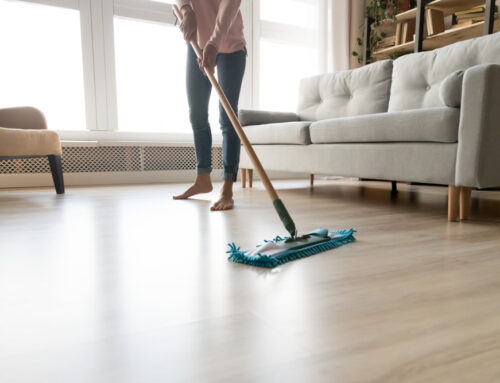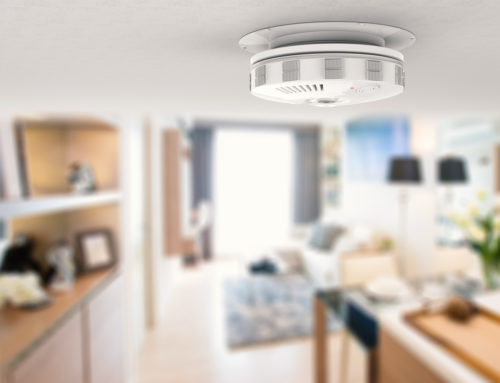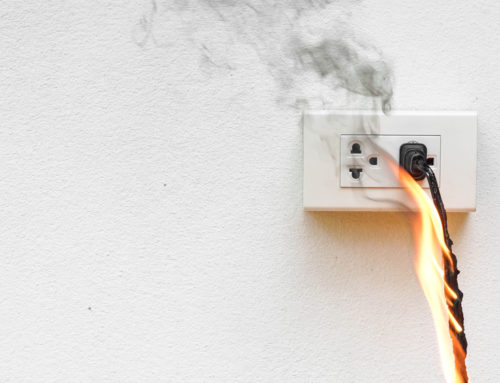It may require more than a flashlight for your tenants to make it through a power outage safely. Landlords, here’s what to do in a power outage as told by a team member and tenant who experienced this first hand.
Are your tenants truly prepared for a power outage? I know I wasn’t. It was going to be a great Father’s Day weekend. We had plans to take Dad out for a nice meal, see a movie, and maybe even play a round of miniature golf at our favorite course. That relaxing weekend quickly turned into a very stressful one when a band of intense thunderstorms (including a weak tornado) moved through our area, knocking down trees and disconnecting power to over 100,000 homes in the Kansas City metro.
For many of us, a power outage may seem like a minor event, but depending upon the weather conditions and the duration of the outage, it can be a dangerous time for your tenants and your property. I hope the personal lessons I share below will help you avoid losses related to power outages and keep your tenants safe too.
Hot Temperature
I am used to summer power outages only lasting a few hours – just long enough to make the temperature in the house a little uncomfortable and make you wonder if you are going to have to throw out the contents of your refrigerator. Father’s Day weekend, we were out of power for about 48 hours while others in Kansas City were out of power for 72 hours or more. While that may sound like a relatively short period of time, going without air conditioning in 90-plus-degree heat and high humidity can be surprisingly exhausting and brings with it serious health risks for the elderly or those with medical needs. The lack of electricity was more problematic than a mere inconvenience of no lights, TV, computer, or ability to charge a phone; it was a matter of physical safety. And in this case, I was concerned about my Dad’s health.
If the temperature is too hot, not having power can pose a real and quick threat. The NSC states that heat-related illnesses “can escalate rapidly, leading to delirium, organ damage, and even death.” Health Research Funding reports heat injuries occur when the body reaches temperatures of 104° or higher. The good news is the odds of survival are 100% when rapid, proper treatment is given to someone suffering from heat exhaustion. Heat stroke, however, will likely require a visit to the ER. Here are some heat safety tips to share with your tenants in case of a power outage during extreme heat.
Cold Temperature
Although my power outage was during the summer, winter power outages are just as common and deadly. People exposed to extreme colds are susceptible to frostbite and hypothermia in a matter of minutes. Especially, if they are not dressed properly.
Unlike hot weather, tenants oftentimes aren’t easily able to drive somewhere else that has heat or get the items they need. Preparation matters.
How to Prepare for a Power Outage
Light
For a short power outage, you may only need your flashlight, but the longer the outage, the more supplies your tenant is going to need. In our case, we did have headlamps, which were super helpful in navigating the dark while keeping our hands free. Candles are great, but they also present a fire hazard, and we’ve seen many costly fire claims involving unattended candles.
Luckily my husband is a remodeler so he was in the know about inexpensive battery-operated puck lights. Though they usually mount to walls with a paint-safe adhesive, you can also set them on any counter in the house to provide light. This safe candle alternative can be turned on and off to save battery power, acting just like a normal lamp. Tenants will also want to plan to have extra batteries and a portable charger or power bank.
Food Storage
In case of a power outage, you’ll also want to advise tenants to have enough nonperishable food and water. Keeping freezers and refrigerators closed will help keep food safe to eat. Throw out food if the temperature is 40 degrees or higher.
Temperature Regulation
Heat
To cool down our home, we went straight to Walmart to buy some battery-powered fans (and a ton of batteries). With rising temps, we decided to seek air conditioning at the local sporting goods store, a restaurant, and the movie theater. (Happy Father’s Day?) However, we didn’t want to stay away too long as we have two cats and a dog.
Once we had suffered through the stifling air overnight, we decided to go on the hunt to borrow a generator. This helped us at least be able to turn on a few lights, plug in the fridge, and a couple more fans and charge our cell phones so we could stay connected with everyone. After a trip across town and half an hour of set-up, we were able to enjoy Father’s Day weekend with my dad.
Cold
Tenants may think, “My stove and oven use gas. I’ll just use that to warm up the place.” And, that is a very dangerous thought. Say hello to not only a fire and burn hazard, but also a possibility of carbon monoxide poisoning. It’s very common that people will do this, so if there is a power outage in your area, make sure to make your tenants aware of the dangers.
A better alternative, if there is a fireplace on the property, tenants may start a fire there. This can still be very dangerous if left unattended and without a fire extinguisher near by. So, you’ll want to prepare every fall by having the fireplace serviced and cleaned and tell your tenants when they move-in where the fire extinguisher is located.
Lastly, tenants may also have a generator to plug in space heaters. Space heaters can also cause a fire if left unattended. Not only that, but generators come with their own set of safety rules that tenants should know about.
5 Ways Your Property can get Damaged During a power Outage
- Appliances – If your tenant’s TV gets “fried” in a thunderstorm, that may not be your problem, but if you own the appliances, they could also be in danger from surges that may occur when power is restored. Replacing appliances is always a significant expense under the best of circumstances, so making sure they are unplugged during a power outage may save you from replacing them prematurely.
- Sump Pumps – If your sump doesn’t have a backup battery, where’s all that water in the basement gonna go? With strong storms may come a lot of rain. And with downed trees and other plant debris, city drains may get blocked and then you have additional drainage issues. Remember, Flood is a separate coverage from your property coverage, so though you may not live on a flood plain, you still may need Flood coverage for a heavy rain event. Did I mention Sewer Back-Up is also a standard exclusion from most policies too? Be sure your sump keeps humming!
- Mold Issues – Add heat to a damp basement and you can quickly be in mold heaven…well, it’s heaven for the mold anyways. Another reason to get to your property timely is that mold can begin to grow in as little as 24 to 48 hours. Mold is typically excluded from insurance policies so it is in your best interest to get things dried out as soon as possible. And please don’t use bleach. It can only exacerbate the problem, say the experts from Green Works.
- Vacancy Issues – Even if an event isn’t catastrophic in nature, but lasts several days, residents may retreat to city shelters and homes may be left vulnerable to vandals. After all, all the power in the neighborhood is out, so who is going to see them? And, seeing a flashlight bobbing around inside a dark house isn’t really suspicious at this point because everyone is using flashlights. Not to mention, some tenants (maybe not your best ones) may decide this is the perfect time to relocate to somewhere more comfortable.
- Trees – Trees can be one of the most valuable or destructive items to your “curb appeal.” Be sure you stay on top of maintenance before the storm season arrives. It may not only cause tens of thousands of dollars of structural damage but a tenant could also be seriously hurt or die when a large tree falls on the house.
Your tenants may not be prepared for an emergency situation, but you can help. Education before an event occurs is key. In the event of an emergency be ready to assist and act on any necessary repairs. Making plans for crisis situations before they happen will enable you to respond more effectively and potentially lessen or eliminate any damage to your property or pocketbook and keep your tenants safe.

